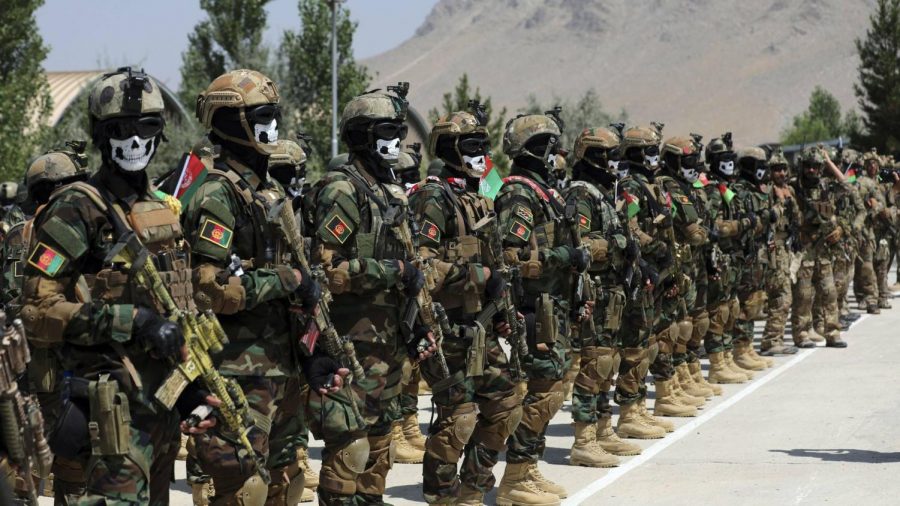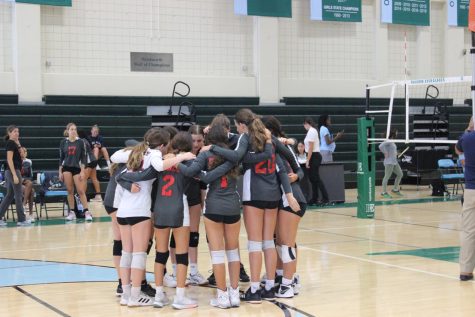Twenty years in Afghanistan
A look into America’s longest war, including its tensions and contradictions.
The Afghanistan army lining up, wearing protective masks and carrying guns. Courtesy of The Institute of International Affairs.
The Afghanistan conflict is an ongoing, 43-year-old endeavor, in which the U.S. has been directly involved from 2001-2021. This has been a period characterized by foreign intervention, political instability and great uncertainty for the people of Afghanistan. Beginning a few days after the infamous Sept. 11, 2001 attacks and ending in August. 2021 with capital city Kabul falling in the hands of the Taliban, such a war was bound to be riddled with controversy and contradiction through its handling by four presidents looking to prove the strength and capacity of the U.S. by decimating the Taliban and Al-Qaeda and simultaneously upstarting an Afghan democratic government.
Pre-war relations
In contrast to the wartime ties between the U.S. and Afghanistan, relations prior were few yet impactful. During the 1980s, the Soviet Union (USSR) intervened in Afghanistan to support the ruling People’s Democratic Party of Afghanistan (PDPA) communists. Opposed to them were several fundamentalist factions, most notably the Mujahideen with militant and religious views that opposed social equality but also aligned with Western anti-communist views. Such factions then received funding from the U.S. and global west, creating worthy opposition for the PDPA and USSR. However, little mind was paid to their beliefs, with every consideration coming second to defeating the Soviets. As the PDPA fell, power vacuums created conditions for the Mujahideen to evolve into more extremist groups, including the Taliban, who consequently took control of the nation. Thus, establishing an oppressive fundamentalist state in which foreign terrorist groups such as Al-Qaeda could take residence in exchange for financial support.
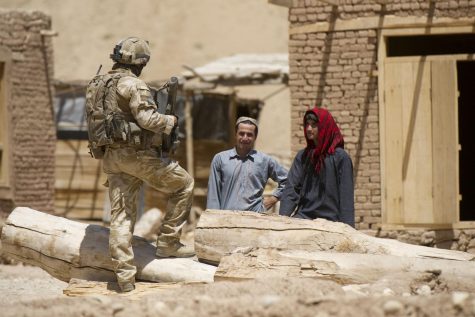
Starting the war
After the Taliban took charge, it was only a matter of time until the west was affected. Manifesting itself in the tragic terrorist attacks of 9/11 carried out by Al-Qaeda, this abominable event sent the entire U.S. into turmoil, with the public demanding retaliation and an enemy to blame. Soon after, President George W. Bush signed a joint resolution into law, which allowed military action to be taken against terrorists and accomplices. From here, legal justification was found for the beginning and continuation of war as long as a terror threat was present, thus explaining how this war was able to go on for so long.
Showing how tensions in the geopolitical climate gave Bush the positioning to act decisively and in a way that would quickly restore faith in American hegemony, the war on Afghanistan had officially begun.
During the war
On Oct. 7, 2001, the U.S. military began its bombing campaigns against the Taliban as a part of “Operation Enduring Freedom.” At the start of the war, most of the west fought with the use of airstrikes, while the groundwork was being done by U.S. Special Forces and their allies. Naturally, these prolonged bombings resulted in the Taliban’s first retreat in a month and an official surrender declared on Dec. 9, 2001. However, the U.S. could not leave after creating a power vacuum, with no clear ruling power. So, they chose to enter a democracy-building mission in order to rebuild Afghanistan. Bush likened this to the Marshall Plan in the 1940s as a permanent solution by building a free Afghanistan.
Despite significant advances, the U.S. had created a problem for itself. As persistent heavy military attacks were the only thing that could keep the Taliban down, simultaneously they decimated stability in Afghanistan that was just being built, loosening public support for intervention.

“I do not believe that there was a definitive moment when all hope was lost and that the Taliban’s takeover of Afghanistan was inevitable,” sophomore and JROTC member Lorenzo Londono said. “Rather, I believe that the overall morale of the soldiers and American people that had been deployed there for years had shrunk so much after seeing countless failures, that nobody really believed that a 100% victory was ever going to happen.”
It seemed that for every advance in Afghan democracy came another military operation with increasing collateral damage. With the impression that political institutions in Afghanistan were only held up by American fighter jets. Tensions only escalated as more Afghan civilians harmed by the war turned to insurgents and brought whole new contradictions as civilian casualties became synonymous with American liberating missions.
End of the war
After failed peace talks from the three previous presidents, President Joe Biden made the executive decision, announcing that by Sept. 11, 2021, all troops would be withdrawn. The rapid fall of Kabul and subsequent reemergence of the Taliban as Afghanistan’s rulers confirmed that the war was a pointless waste of time.
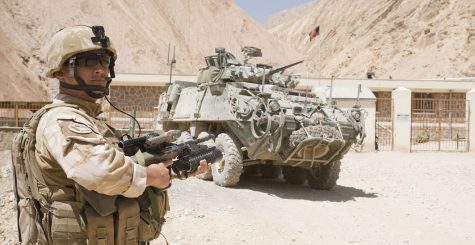
“Although we were losing troops in Afghanistan it was still the wrong move, it shows every country that America can lose a war willingly, makes all of the lives lost in previous years of this war for nothing and leaves all the innocent people of Afghanistan in danger of their lives to the Taliban,” sophomore Coal Lingenfelser said. “I feel it was the wrong move by the president.”
This idea is only furthered by the current all-time low 43% approval rate for Biden, who many believe misshaped an already bad situation into a dire one, dismay which is also carried onto Presidents Trump and Obama who have also garnered criticism for their parts leading up to these events.
“I felt really good and was relieved that the war would finally come to an end. Now of course I feel awful about the way President Biden handled the withdrawal of troops from Afghanistan…it seems like the current administration greatly underestimated the Taliban and did not anticipate how quickly Afghanistan would fall to them,” sophomore Emmanuelle Desmet said. “It’s also really disheartening to see those 20 long years of the American war effort going to waste judging by how quickly Afghanistan fell.”
Thus, showing resolving sentiments around Biden’s final troop withdrawal and the end of the war.
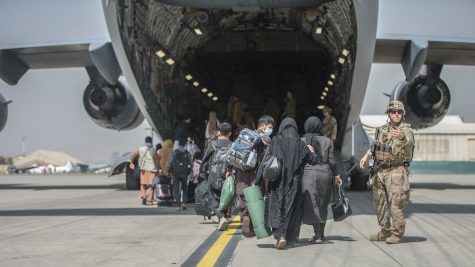
Your donation will support the student journalists of Coral Gables Senior High School. Your contribution will help us cover our annual website hosting costs.


